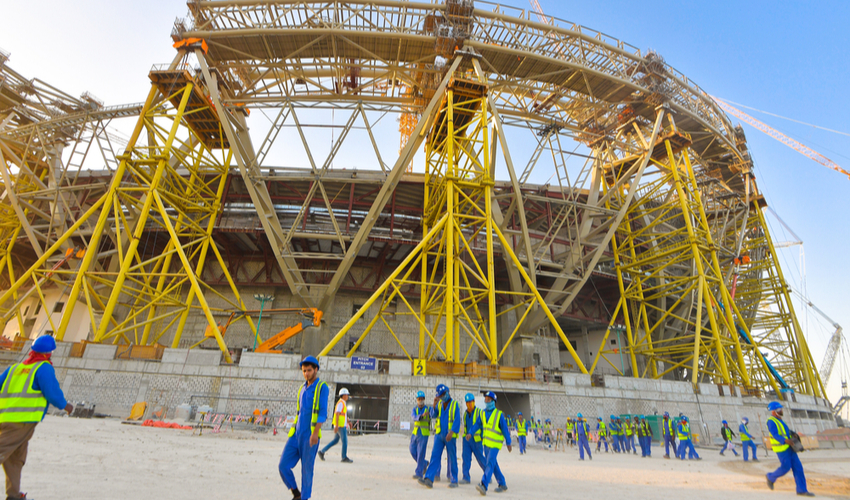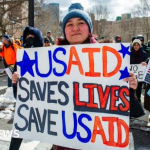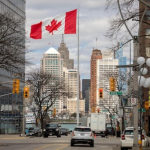
Last updated on June 25th, 2020 at 01:14 pm
Amnesty International released a new report indicating that migrant workers employed on a construction project for a FIFA World Cup stadium, in Qatar, worked for up to seven months without getting paid. Approximately 100 employees of Qatar Meta Coats (QMC), a design and construction company subcontracted for façade works on the £685m 60,000-seat Al Bayt Stadium in Al Khor City, are still waiting to be paid their full salaries. The organization says.
It has also documented how QMC failed to renew employees’ residence permits, putting them at risk of detention and deportation among the new coronavirus pandemic. This week, after Amnesty raised the QMC case with the Qatari authorities, FIFA, and Qatar’s World Cup organising body the Supreme Committee for Delivery and Legacy, some employees began to receive part of what they were owed, but none have yet received all of their unpaid wages.
“This case is the latest damning illustration of how easy it still is to exploit workers in Qatar, even when they are building one of the crown jewels of the World Cup”
Steve Cockburn, Amnesty International’s Head of Economic and Social Justice
From its part, FIFA said it contacted Qatar’s Supreme Committee once it became aware of the case following Amnesty’s investigation, and is now working with its partners in Qatar to ensure that outstanding salaries are paid. However, it remains unclear why FIFA was unaware of the Al Bayt Stadium situation until May. Amnesty believes that FIFA’s apparent lack of awareness of the plight of workers at one of its World Cup stadiums shows the footballing body is still failing to take human rights abuses linked to the 2022 World Cup seriously.
“This case is the latest damning illustration of how easy it still is to exploit workers in Qatar, even when they are building one of the crown jewels of the World Cup”.Steve Cockburn, Amnesty International’s Head of Economic and Social Justice said, adding that “although recent payments will provide some welcome relief for workers, Qatar’s World Cup organisers told us they had known about the salary delays since July 2019. This raises the question of why Qatar allowed workers to continue working for months without pay.”
For years, the International community and several Human Rights Organizations, included Amnesty International, have been urging Qatar to reform the system, but clearly change has not come fast enough. QMC workers told Amnesty that salary delays had affected all those working on the Al Bayt Stadium, approximately 100 migrant workers from Ghana, Kenya, Nepal and the Philippines, among other countries. The report affirms that delays in salary payments began in early 2019 before deteriorating further. Many QMC employees received no salary at all between September 2019 and the end of March 2020, with some payments stopped as early as August.
In January, after repeated unfulfilled promises over payment, some workers submitted complaints to Qatar’s labour tribunals. During mediation sessions, QMC representatives agreed to settle some claims but didn’t do so. By the end of February, QMC had removed all remaining employees off the Al Bayt Stadium and asked them to report to its factory, which manufactures and finishes materials including aluminium and steel, apparently for use in the stadium. The employees continued to work at the factory without pay until 22 March, when the factory closed due to coronavirus.
Qatar’s Supreme Committee for Delivery and Legacy told Amnesty that it first learned of QMC’s payment problems in July 2019 during audit interviews with workers, and had since taken various measures to try to remedy the abuse, including meeting the company’s management, blacklisting it from future contracts and informing the Ministry of Labour.
The QMC workers’ situation is exacerbated by the fact that most now have residence permits which have expired because the firm has failed for several months to renew them. Under Qatar’s controversial “kafala” system, migrant workers rely on their employers for almost every aspect of their legal presence in the country. Employers have a responsibility to provide them with valid residence permits, without which migrants cannot work legally in the country, will accumulate fines and can be detained or deported. Theyalsocannotchange jobs withouttheiremployers’ permission.
According to Worldometer, the total cases in Qatar from the beginning of the pandemic are 75,071, 69 the deaths, while 51,331 patients recovered. Qatar is the only country of its region where the COVID-19 increase continues to rise exponentially as the virus is spreading between migrant workers in labour camps. Just in the last 24 hours Doha recorded 1,476 new cases and 3 new deaths. Most of them are migrant workers, unable to resort to treatments in Qatari clinics or hospitals for a fee. Qatari leadership didn’t take any action to ensure that migrant workers including undocumented labours, quarantined or otherwise, have access to testing and get appropriate medical treatment.
Coronavirus Updates in Qatar:
Confirmed: 75,071
Recovered: 51331
Deaths: 69







